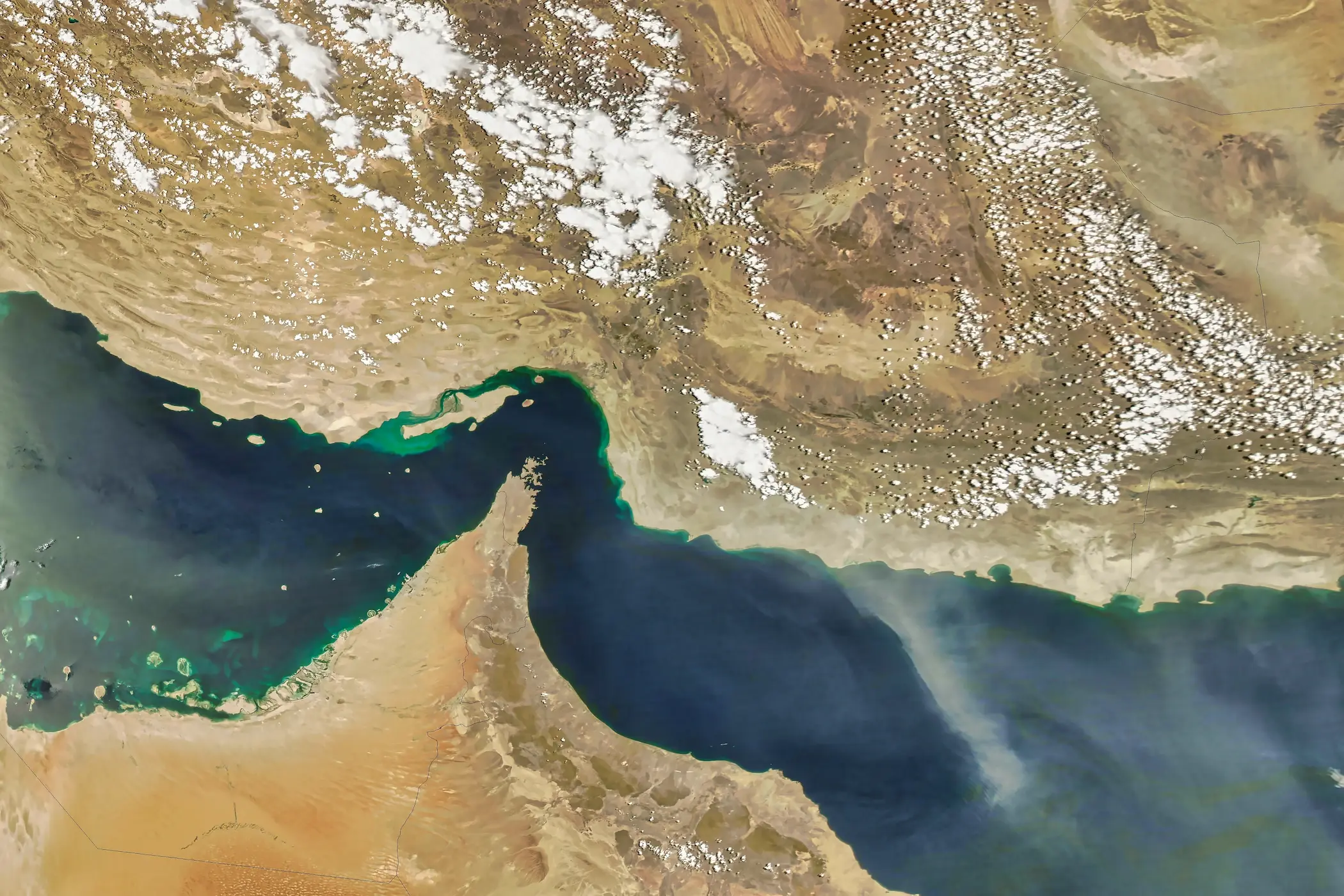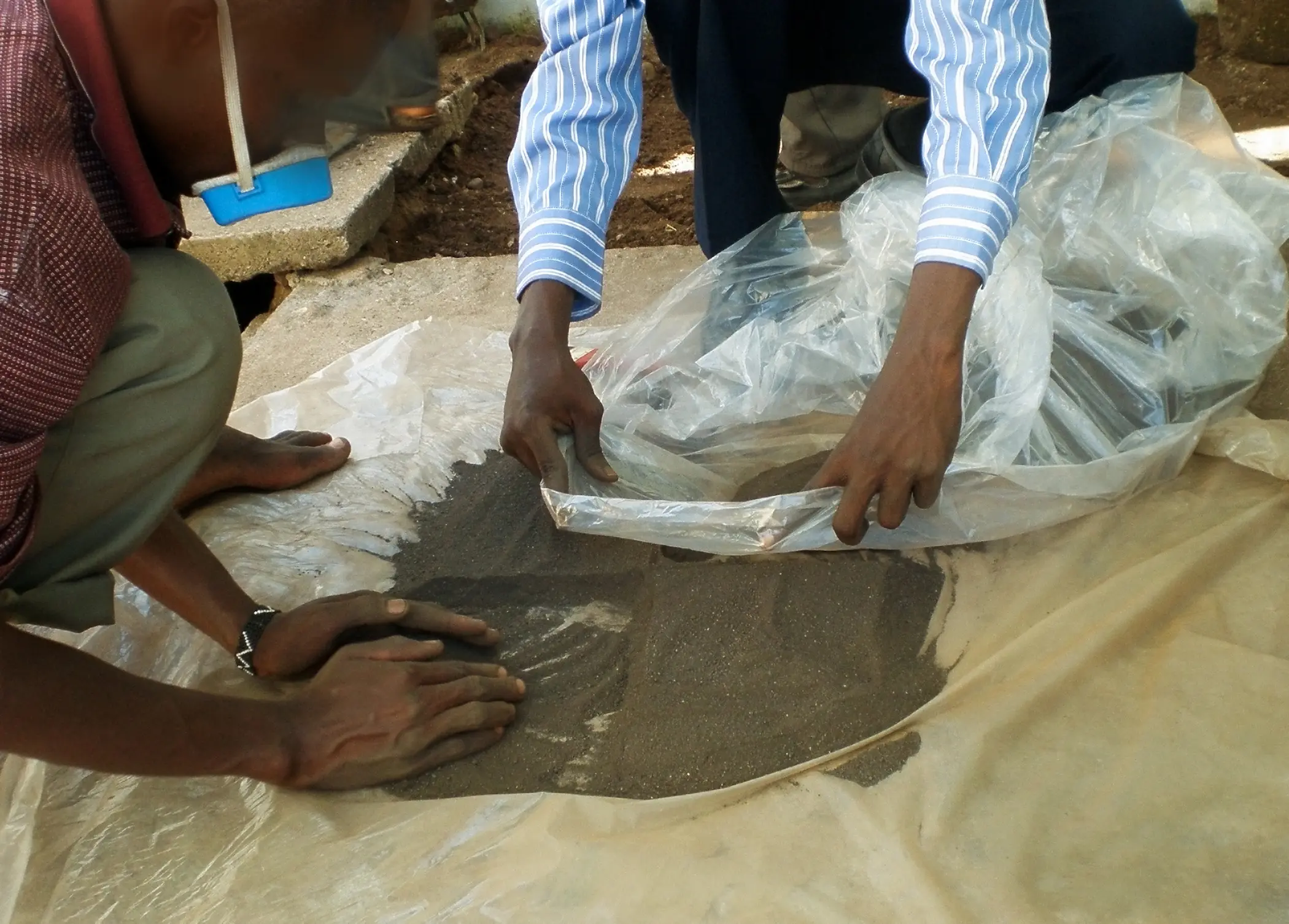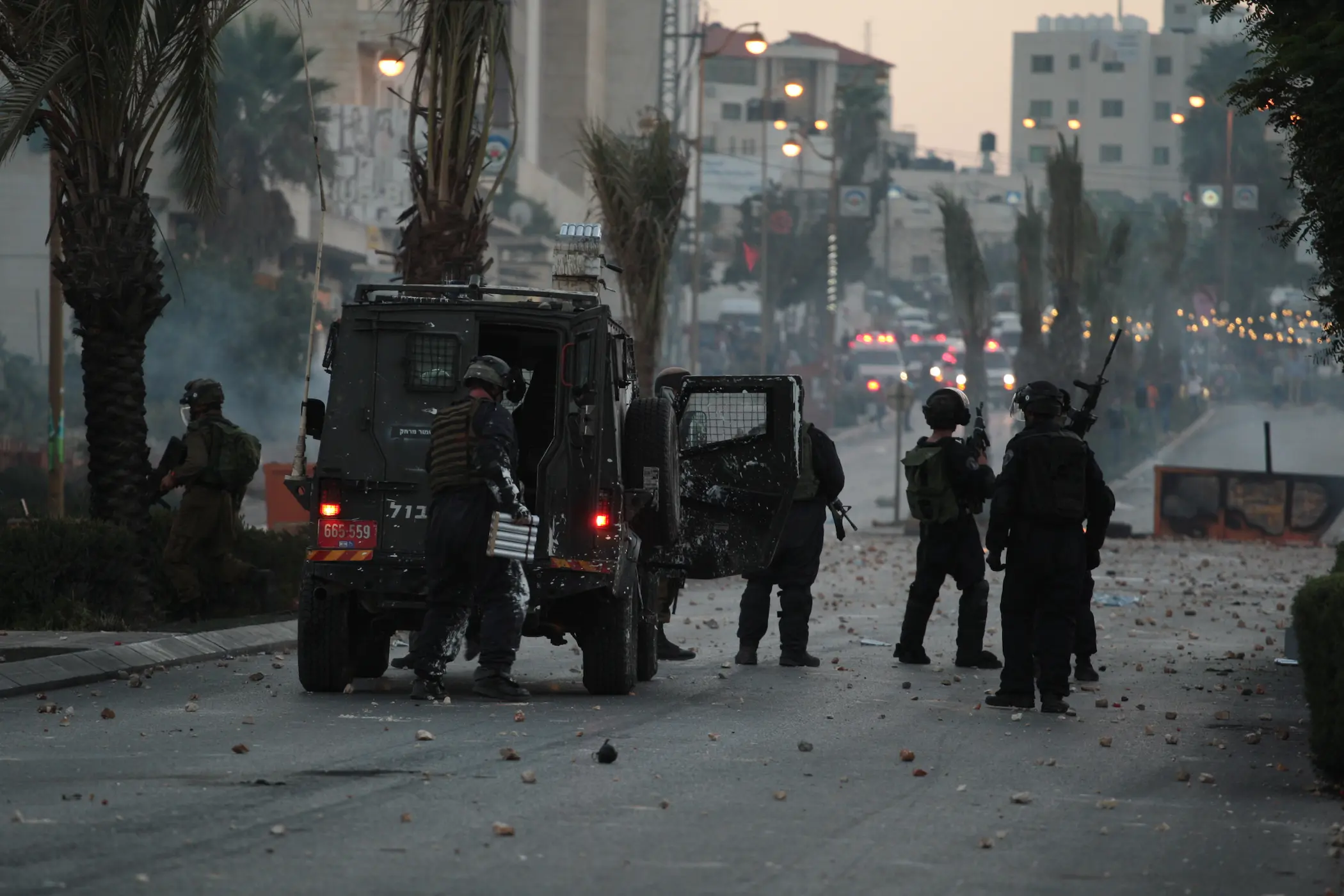19 Jun 2025
What If: Iran Closed the Strait of Hormuz?
The Strait of Hormuz – a narrow, indispensable artery through which nearly a fifth of the world’s oil and a third of its liquefied natural gas (LNG) flows– stands on a cliff. As geopolitical tensions intensify across the Middle East, fuelled by escalating Iran-Israel tensions and the shadow of direct United States (U.S.) involvement, the once-unthinkable threat of its closure looms larger than ever with Iran’s threat to close or block the Strait. In spite of the catastrophic global implications of such an act, the volatile depths of this potential crisis will be explored, unravelling the motives that could push Iran to choke this global lifeline, exposing the monumental security and geopolitical fallout, and revealing the catastrophic economic shockwave that would consume nations far beyond the region.
28 May 2025
What If: The US Economy Collapses?
Global trade tensions, supply chain disruptions, and skyrocketing costs are some of the unprecedented effects caused by U.S. president Donald Trump’s second term aggressive tariff policies. Tariff policies' impact goes beyond being just hypothetical, with real-time predictions and forecasts that more severe effects could follow; the global GDP is expected to slowly grow by only 2.2% in 2025, while the United Nations Conference on Trade and Development (UNCTAD) has warned of a possible global recession, given that growth slips below 2.5%. Not only the UNCTAD but also the International Monetary Fund (IMF) has downgraded its outlook for the global economy to 2.8% in 2025 and made a significant revision for the U.S. economy lowering its 2025 growth projection to 1.8% in April from 2.7% in January. Adding to these concerns, the World Trade Organization has already highlighted a sharp deterioration in global trade prospects, with world merchandise trade now expected to decline by 0.2% in 2025, nearly three percentage points lower than previous forecasts.
The current instabilities go beyond the economic aspect; they also affect the U.S.’s international alliances and add additional burdens to households, many of whom are delaying major life decisions. A pressing question amid recession fears arises: What are the impacts on a global scale in the event of a U.S. economic collapse? Given the leading position the U.S. plays as the world’s largest economy and the leading issuer of primary reserve currency, such a downturn would trigger a financial disaster of unparalleled magnitude. Essentially, if the U.S.’s economy falls, the world’s economy falls with it. Imagine waking up a few years from now, pulling out your phone, and seeing the headline: "U.S. Economy in Freefall: Markets Collapsed Overnight." It begins as a distant rumble, as if a story is taking place somewhere else. But then you go to get your morning coffee, and the price has tripled. Your investment app reveals that your life savings have been devastated. Overseas, factories that rely on American consumers come to a standstill, leaving entire villages jobless. The USD, once the cornerstone of global banking, has collapsed, provoking wild currency wars as governments try to preserve their own. Suddenly, that far-off catastrophe isn't so far away; it's emptying your wallet, increasing your grocery cost, and endangering your basic existence. This isn't just a headline; it's a chilling, global economic winter, its icy grip felt in every home, on every continent, for generations. Are we truly prepared for such a cataclysm?
22 May 2025
What If: China Invades Taiwan?
China and Taiwan have had a complex relationship. Taiwan was once a part of China, following the Chinese Civil War in 1949, the government of the Republic of China retreated to Taiwan, while the People's Republic of China established itself on the mainland. For decades, Taiwan was recognized by many countries as the legitimate government of China, even holding China's seat at the United Nations until 1971, when it was replaced by the People's Republic of China. While China pledges to reunify Taiwan, even by force, the latter depends on the United States to deter any potential Chinese invasion.
Given the current geopolitical changes in the world, there is a possibility that China could invade Taiwan, exploiting the West’s emphasis on the Russia-Ukraine War.
14 May 2025
What If: The India-Pakistan Ceasefire Collapses?
The recent U.S.-brokered ceasefire between India and Pakistan, following four nerve-racking days of escalating military exchanges, offered a moment of reprieve from the brink of what many feared could become an all-out conflict between the two nuclear-armed neighbors. Missiles and drones crossed borders, tensions were sky-high, and the language from both capitals was increasingly aggressive. President Trump's sudden announcement of a truce, while welcomed, underscored the inherent fragility of the situation. Amid celebrations in India and Pakistan, and self-congratulations in Washington, Kashmir endured another night of violence, with both sides claiming violations. This temporary calm exists against a backdrop of deep-seated historical grievances, unresolved territorial disputes, evolving nuclear doctrines, and a complex interplay of internal and external pressures. The critical question now is not just how the ceasefire was achieved, but whether it can hold, and what the consequences would be if this fragile truce were to collapse.
6 May 2025
DRC Minerals and a Potential U.S.–EU Confrontation
In a few months, the Trump administration is expected to push Rwanda and the Democratic Republic of Congo (DRC) to sign a peace deal which is supposed to be followed by a bilateral minerals’ agreement between the U.S. and the DRC. The agreement puts some parties in an advantageous position while leaves others with a less fortunate fate. The U.S. is supposed to gain economically and politically by this agreement especially when it comes to its rivalry with China. While the DRC is expected to gain in the short-term leveraging the “conflict minerals” narrative, the long-term consequences are not necessarily desirable. The EU is left with the undesirable situation. The bloc will either adjust its policies toward the DRC’s minerals or remain in a situation where a clash with the Trump administration is possible. While a direct military confrontation between the two powers remains improbable, a proxy war in which M23 rebels are a main actor is possible. Additionally, with minerals gaining increasing geoeconomic relevance, Trump has eyed several countries including Ukraine, and the DRC, who could be his next target?
10 Apr 2025
Navigating the Thaw: Scenarios for the US-Iran Negotiations
The geopolitical landscape in the Middle East is set for a potentially major shift with US President Donald Trump’s announcement of the resumption of negotiations between the United States and the Islamic Republic of Iran, scheduled to begin on April 12, 2025. Following a period marked by escalating bilateral tensions and the effective dissolution of the Joint Comprehensive Plan of Action (JCPOA), this resumption of dialogue has generated considerable anticipation both within Iran and across the wider region. The initial, albeit potentially transient, positive reactions observed in Tehran’s financial markets, as evidenced by movements in the stock market and gold prices, underscore the profound economic implications these discussions could hold for the Iranian populace. Furthermore, the potential for these negotiations to influence broader regional stability is a matter of significant concern and interest even for the nations within the Arabian Gulf. While the precise modalities of these diplomatic engagements – specifically whether they will entail direct bilateral talks, as suggested by the U.S. administration, or proceed indirectly through intermediary channels – remain subject to clarification, the very initiation of dialogue signifies a notable departure from the recent trajectory of U.S.-Iran relations. This analysis will therefore explore a range of plausible scenarios that may unfold as delegations from the United States and Iran convene on April 12, and consider the salient internal political dynamics within both nations, the prevailing external pressures exerted by regional and international actors, and the specific contextual factors that have contributed to this renewed, albeit cautious, engagement.
18 Feb 2025
The New Frontier: West Bank is the New Gaza
In recent months, the West Bank has witnessed rising violence. The timing in which the West Bank is witnessing escalation is not a coincidence, it is connected to the ceasefire in Gaza. While right-wing elements refuse the ceasefire deal, it is generally argued that Israeli Prime Minister Benjamin Netanyahu has to appease those elements in his coalition. Netanyahu who is believed to have been pressured to accept the deal, does not find any alternative to satisfy right wingers in his coalition other than shifting the war to the West Bank. While this understanding is not entirely false, it is suggested that recent events in the West Bank are part of Israel’s expansionist plan aiming at imposing Israeli sovereignty on the territory. Using legal and political manoeuvres, Israel aims to turn the West Bank into another Gaza which results in broader regional implications.
11 Feb 2025
What Is Beyond the USAID Controversy?
Recent decisions by U.S. President Donald Trump cutting aid to foreign countries and dismantling the U.S. Agency for International Development (USAID) have sparked global backlash. While the impact of cutting aid is substantial, the broader significance of this move cannot be overlooked. It reflects a deeper shift in the Trump administration’s foreign policy strategy. But what are the implications for the U.S. and its adversaries?
20 Jan 2025
Is the Russia-Ukraine War Nearing Its End?
President-elect Donald Trump has pledged to bring an end to the Russia-Ukraine war, though he has yet to specify how. A negotiated settlement appears to be the only viable path forward, as a decisive military victory for either side seems unlikely. Western nations, particularly those in Europe, are struggling with internal challenges, leaving them in a weak position with limited leverage at the negotiating table. Meanwhile, Russia also finds itself in an unenviable situation, creating a potential opening for Trump to encourage both parties toward a resolution. However, for any agreement to lead to lasting peace, security guarantees for Ukraine must be a central component. These guarantees are likely to be the key trade-off for any concessions that Europe would likely offer.
23 Dec 2024
The Fall of Al-Assad: Beyond the Defeat of a Regime
More than a decade after the outbreak of the Syrian Civil War, the unexpected fall of the Assad regime shocked many commentators and world leaders who believed that President Bashar Al-Assad had firmly consolidated his power. This development demonstrated that despite enduring years of civil war, Syria continues to hold strategic relevance at both regional and international levels. The conflict has provided an opportunity for regional and global powers to establish a presence in the country, amplifying the impact of the regime's collapse far beyond Syria's borders. Notably, the fallout has produced clear winners, with Turkey and Israel at the forefront, and losers, including Russia and Iran. Meanwhile, some European countries have discreetly benefited from the situation without openly acknowledging their gains.
10 Dec 2024
What If: Israel Created a New Corridor to the Euphrates in Syria?
The dream of Greater Israel is not fictional but real, first developed by Theodore Hertzel, the founding father of Zionism, Greater Israel include all lands from the Nile in Egypt to the Euphrates in Iraq. This includes territories from Egypt, Syria, Iraq, Kuwait, Saudi Arabia, all Jordanian territory, and all historical Palestine. In 2017, the United Nations issued a report indicating that Israel is proceeding with its plans to annex Palestinian lands in the West Bank while keeping Palestinians in severe conditions of isolation and deprivation. Moreover, soldiers of the Israeli army have worn badges showing Greater Israel during military operations in Gaza, indicating that Israel might expand its military operations in the Middle East after ending its military operations in Gaza. The pathway to accomplishing the dream of Greater Israel began in November 2024 when Israel entered the demilitarised zone that separates the occupied Syrian Golan Heights. In this area, Israel began establishing a construction project, paving a road along the borders with Syria. What if the Israeli construction project in Syria is the first step to build a corridor that would connect Israel to the Euphrates, thus making Israel closer to achieve the dream of Greater Israel? What will be the consequences if Israel manages to create this corridor?
8 Dec 2024
Are We Waving Goodbye to Macron?
France's political crisis is moving toward uncharted territory. Since June, President Emmanuel Macron has thrown the nation into turmoil by calling for snap elections. This decision set off a cascade of crises, culminating in the resignation of Michel Barnier, the shortest-serving prime minister in France’s modern history. The fallout isn’t confined to France alone; its ripple effects are being felt across the European continent. Considered the culprit of all this, the question looms: will Macron soon be ousted?











